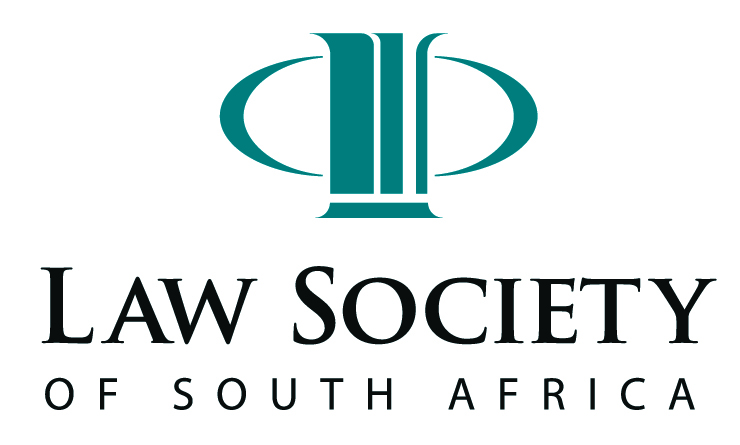Mvuzo Notyesi, Attorney and Director at Mvuzo Notyesi and President of the Law Society of South Africa
SPONSORED
This Webinar was hosted by the Mail & Guardian and the Law Society of South Africa. It featured Mvuzo Notyesi, Attorney and Director at Mvuzo Notyesi and President of the Law Society of South Africa and William Booth, Criminal Law Committee Chairperson and Cape Town Attorney, and was moderated by Michael Avery, Anchor of Classic Business, Classic 1027 and Presenter for Business Day TV.
The Coronavirus has put us into unchartered territory. The lockdown has impacted us in various ways. There is a widespread view that the Constitution has been suspended, and that the authorities have overreached themselves and are acting beyond the ambit of the law. The management of the state of disaster requires that those who are entrusted with this power should act with accountability and act within the context of the Constitution.
We are in most extraordinary times. This has affected all professions, particularly the legal one. It has been problematic to understand the law, as many new regulations have been promulgated recently, and they change regularly. There should have been more consultation with lawyers when drawing them up. Some of these regulations are being challenged in court, and the way they are being enforced is a huge issue.
“I believe that many members of the police force have not been trained properly to deal with these unusual circumstances,” said Booth. “They should have been trained to deal with members of the public, particularly at roadblocks. There have been many complaints of citizens being stopped, questioned and in some instances, assaulted. Law enforcement officials must realise that they are there to serve the nation and uphold the law. The Constitution is still in place, and many officials seem to forget that. Even when members of the public go to police stations, they are sometimes treated very rudely, and that’s not acceptable.”
If you are arrested and fined in lockdown, you do get a criminal record if you pay the admission of guilt fine. Many citizens are unaware of this — they get stopped, and they think, “let’s just get rid of the case”, and pay the R500 admission of guilt fine, not realising that this becomes a criminal record, and when in a year or two you apply for a job and a police clearance certificate, this will pop up. The way you should deal with this, is to approach the authorities and ask them if they are willing to drop the charges, especially if it is for a petty offence. Many people are being stopped for petty offences, and sometimes not even for contravening the regulations; for walking across the road to get a loaf of bread, for instance. It is important for the public to know: do not pay the admission of guilt fine — it will become a criminal record.
 William Booth, Criminal Law Committee Chairperson and Cape Town Attorney
William Booth, Criminal Law Committee Chairperson and Cape Town AttorneyIf a member of the public has seen an instance of police brutality, they can report the police to their superiors or the police ombudsman, and if you sustain injuries, you can sue the minister of police. But the point is that none of this should be happening, whether in the Covid-19 crisis or not. The police only arrest as a last resort; members of the public can be warned, not arrested. If you have been arrested, the police must advise you that you don’t have to pay an admission of guilt. They should know the law, and this should never occur.
Moving across provincial borders was restricted, but this may have fallen away. The country needs to get back on track and people must move around, but people must realise that they must comply with the safety requirements, for instance, it is not a criminal act to not wear a mask, but citizens must be aware of social distancing and be cautious to prevent infection spreading.
There is still debate about who exercises oversight on the National Command Council? The president does; if its regulations are questioned, this would have to take place in the Constitutional Court. But the priority should be to get the country running again and prevent the spread of the virus. Many regulations issued have seemed to be unfair and at times it has seemed as if the government was not speaking with one voice and contradicting itself.
Does the NPA have the capacity to proceed with 230 000 prosecutions? Notyesi said: “The NPA was already under capacity and struggling to fill 700 posts. I really doubt that they will be able to deal with all these cases. The regulations were intended to protect people from the virus, not to criminalise them. There must be strict oversight to ensure the police are acting with the Constitution.”
You can challenge admission of guilt fines, and sometimes the court will expunge a criminal record. There should never have been so many people criminalised for petty offences. Legislation should be brought in so that people with these fines can have their cases set aside in magistrate’s courts.
You can sue the state for wrongful arrest, and many people were not advised of their rights by the police. Many were arrested for 24 hours for petty offences; in this case you can sue the state for unlawful detention as well. “Things could have been dealt with in a far more effective and reasonable and fair way than the way they have,” said Booth. “This has caused a great deal of anger among law-abiding citizens.”
 Michael Avery, Anchor of Classic Business, Classic 1027
Michael Avery, Anchor of Classic Business, Classic 1027The courts are now becoming more open than they were under Level 4. All the courts seem to be imposing their own rules, and some staff have been ill, so there has been a lack of consistency between courts; some run only bail applications, others run trials, and sanitation regulations are not being observed in many.
There was a lot of illegal tobacco trade before the virus, and the ban is leading to illegal sales, and there are rumours of links to certain politicians who are benefitting from the ban. You are entitled to possess cigarettes, so you don’t have to produce a receipt for having them. It’s ludicrous; you would think the people issuing these regulations would know what the law is; it is totally irresponsible.

For more information, visit: https://www.lssa.org.za/